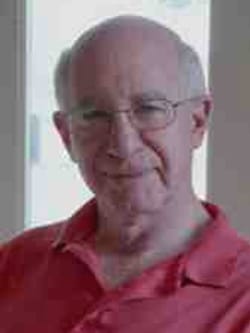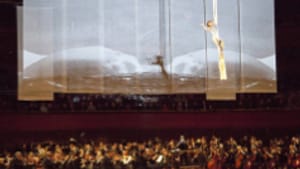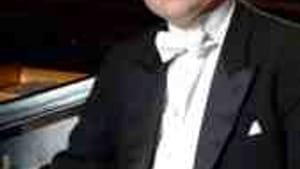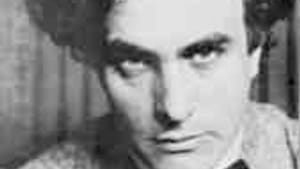
Dan Coren
Contributor
BSR Contributor Since July 15, 2011
A few autobiographical words about Dan Coren.
When, in 2005, my high school classmate Dan Rottenberg asked me to contribute to BSR, I had already enjoyed the honor of participating in Dan's past enterprises, first as an occasional contributor to the Welcomat and later as the regular music columnist for the ill-fated Seven Arts magazine. I was delighted to again have the opportunity to express my views about music.
Because of my parents' love for Beethoven, Mozart, and the like, I grew up surrounded by recordings and radio broadcasts of classical music. Foremost among the gods of my childhood were Franklin Roosevelt (even though he died when I was three), Duke Snider, and Arturo Toscanini. Although neither of my parents was a practicing musician, somehow I got the idea in my head very early on that I was supposed to be a conductor. I have vivid memories of standing on a little podium, using the New Yorker magazine as a score, and waving my arms around during a radio broadcast, egged on by the accolades of my grandparents.
I went on to major in music at Columbia College, and then to earn a Ph.D. in music history from the University of California at Berkeley. Along the way, I was accepted to the summer choral conducting program at the Tanglewood Music Festival. This meant that from time to time I got to conduct what was, for those eight short weeks, one of the world's strongest choruses.
Although I knew that I did not have the goods to be a professional choral conductor, one afternoon near the end of the session I was allowed to conduct, in its entirety, the monumental fugue that ends the Gloria of Mozart's Mass in C Minor. There I was, waving my arms around on a real podium using a real score, carried along by wave after wave of Mozart's ecstatic music.
I went on to join the music faculty at Penn for seven years, but, even though I published my share of scholarly articles and even though I like to think that I was a very good classroom teacher, it soon became clear to my colleagues— well before I admitted it myself — that I was not suited for academic life. Instead of being the good little classical musicologist I been hired to be, I spent as much time as I could in Penn's electronic music studio. There, I developed a course built around the Moog synthesizer that had been purchased the year before my arrival and had been sitting around unused ever since.
One of my students in this class, Harry Mendell, an undergraduate at the Moore School of Engineering, persuaded me to buy a state of the art PDP-8 computer — it had 8K of RAM! – and before long Harry and I had formed a company, Computer Music Incorporated, with the goal of selling a computer-based digital sampler and reverberation device to recording studios. CMI was not a commercial success, but Harry and I have since received recognition for the pioneering nature of our product, the Melodian.
Before long I found myself out of academia and starting a career as a software developer, one that I happily practiced until my retirement at the end of 2009. There is well-known connection between software development and musical aptitude, and even though most of my career was devoted to writing programs having to do with the radar on the U.S. Navy's Aegis cruisers and destroyers, creating computer code always remained an essentially musical activity for me. For my thoughts on the connection between computers and music in my career, you can read my interview with Seth Brown at his website, Evolution of Sound.
Despite whatever practical training I may have received as a musician and despite my academic credentials, I regard myself as an enthusiastic and highly opinionated amateur who has been lucky enough to have been given a public forum to express his views. In early 2011, I took a self-enforced leave from Broad Street Review to devote my energies to a new Internet venture, a web site devoted to teaching music theory to music-lovers who have little or no formal training. It's at dancoren.weebly.com. It started off as a noble effort, but went off the tracks after a few installments. Somewhere along the way, I lost interest in writing about my own musical opinions; these days, I devote my creative energies to making actual music.
Because of my parents' love for Beethoven, Mozart, and the like, I grew up surrounded by recordings and radio broadcasts of classical music. Foremost among the gods of my childhood were Franklin Roosevelt (even though he died when I was three), Duke Snider, and Arturo Toscanini. Although neither of my parents was a practicing musician, somehow I got the idea in my head very early on that I was supposed to be a conductor. I have vivid memories of standing on a little podium, using the New Yorker magazine as a score, and waving my arms around during a radio broadcast, egged on by the accolades of my grandparents.
I went on to major in music at Columbia College, and then to earn a Ph.D. in music history from the University of California at Berkeley. Along the way, I was accepted to the summer choral conducting program at the Tanglewood Music Festival. This meant that from time to time I got to conduct what was, for those eight short weeks, one of the world's strongest choruses.
Although I knew that I did not have the goods to be a professional choral conductor, one afternoon near the end of the session I was allowed to conduct, in its entirety, the monumental fugue that ends the Gloria of Mozart's Mass in C Minor. There I was, waving my arms around on a real podium using a real score, carried along by wave after wave of Mozart's ecstatic music.
I went on to join the music faculty at Penn for seven years, but, even though I published my share of scholarly articles and even though I like to think that I was a very good classroom teacher, it soon became clear to my colleagues— well before I admitted it myself — that I was not suited for academic life. Instead of being the good little classical musicologist I been hired to be, I spent as much time as I could in Penn's electronic music studio. There, I developed a course built around the Moog synthesizer that had been purchased the year before my arrival and had been sitting around unused ever since.
One of my students in this class, Harry Mendell, an undergraduate at the Moore School of Engineering, persuaded me to buy a state of the art PDP-8 computer — it had 8K of RAM! – and before long Harry and I had formed a company, Computer Music Incorporated, with the goal of selling a computer-based digital sampler and reverberation device to recording studios. CMI was not a commercial success, but Harry and I have since received recognition for the pioneering nature of our product, the Melodian.
Before long I found myself out of academia and starting a career as a software developer, one that I happily practiced until my retirement at the end of 2009. There is well-known connection between software development and musical aptitude, and even though most of my career was devoted to writing programs having to do with the radar on the U.S. Navy's Aegis cruisers and destroyers, creating computer code always remained an essentially musical activity for me. For my thoughts on the connection between computers and music in my career, you can read my interview with Seth Brown at his website, Evolution of Sound.
Despite whatever practical training I may have received as a musician and despite my academic credentials, I regard myself as an enthusiastic and highly opinionated amateur who has been lucky enough to have been given a public forum to express his views. In early 2011, I took a self-enforced leave from Broad Street Review to devote my energies to a new Internet venture, a web site devoted to teaching music theory to music-lovers who have little or no formal training. It's at dancoren.weebly.com. It started off as a noble effort, but went off the tracks after a few installments. Somewhere along the way, I lost interest in writing about my own musical opinions; these days, I devote my creative energies to making actual music.












